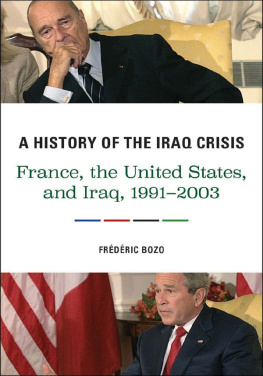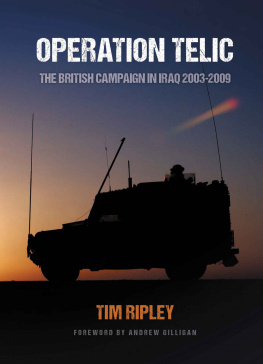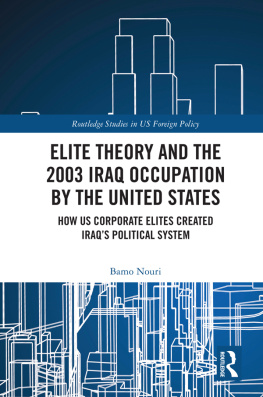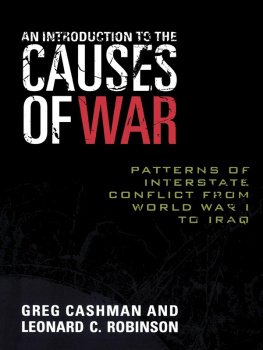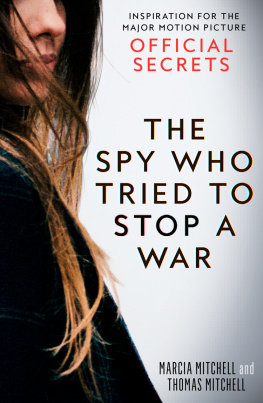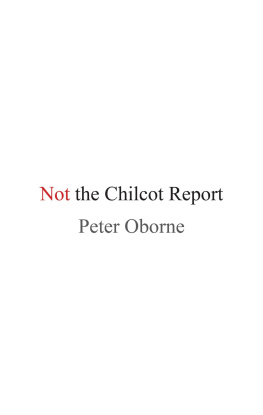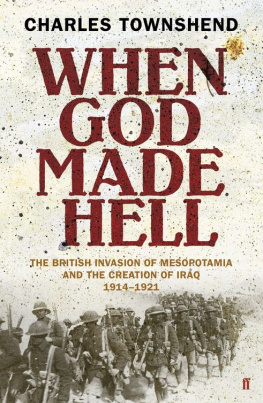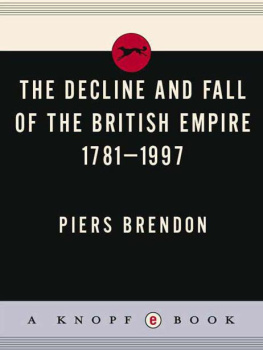Pockets of resistance
British news media, war and theory in the 2003 invasion of Iraq
Piers Robinson, Peter Goddard, Katy Parry and Craig Murray with Philip M. Taylor
Copyright Piers Robinson, Peter Goddard, Katy Parry, Craig Murray and Philip M. Taylor 2010
The right of Piers Robinson, Peter Goddard, Katy Parry, Craig Murray and Philip M. Taylor to be identified as the authors of this work has been asserted by them in accordance with the Copyright, Designs and Patents Act 1988.
Published by Manchester University Press
Oxford Road, Manchester M13 9NR, UK
and Room 400, 175 Fifth Avenue, New York, NY 10010, USA
www.manchesteruniversitypress.co.uk
Distributed in the United States exclusively by
Palgrave Macmillan, 175 Fifth Avenue, New York,
NY 10010, USA
Distributed in Canada exclusively by
UBC Press, University of British Columbia, 2029 West Mall,
Vancouver, BC, Canada V6T 1Z2
British Library Cataloguing-in-Publication Data
A catalogue record for this book is available from the British Library
Library of Congress Cataloging-in-Publication Data applied for
ISBN 978 0 7190 8445 4 paperback
ISBN 978 0 7190 8158 3 hardback
First published 2010
The publisher has no responsibility for the persistence or accuracy of URLs for any external or third-party internet websites referred to in this book, and does not guarantee that any content on such websites is, or will remain, accurate or appropriate.
Typeset in Minion
by Servis Filmsetting Ltd, Stockport, Cheshire
Printed in Great Britain
by CPI Antony Rowe Ltd, Chippenham, Wiltshire
Contents
List of tables and figures
Tables
Figures
Preface and acknowledgements
It is has often been noted that news reporting of war tends to introduce new terminology to the language. Such terms generally originate from briefings and other government and military media-management activities attended by journalists. While watching and reading some of the extensive British news coverage given to the 2003 invasion of Iraq, one of the new phrases that we noticed was pockets of resistance. Journalists would report that significant Iraqi positions had been taken by coalition forces but that pockets of resistance remained, often making it too dangerous to travel there. We found the implications of this term, and the fact that it had passed into news coverage largely without challenge, to be revealing: it seemed to allow the coalition to claim that targeted locations had fallen before Iraqi resistance had actually been overcome. This was but one of many aspects of the news reporting of the invasion that raised questions for us and inspired us to want to enquire in detail into how the war was reported. This book is the end result of that enquiry.
This book derives from an 18-month-long project funded by the Economic and Social Research Council (ESRC): Media Wars: News Media Performance and Media Management during the 2003 Iraq War (RES-000-23-0551). The principal applicant was Piers Robinson, co-applicants Peter Goddard, Robin Brown, Philip M. Taylor; the principal research assistant was Katy Parry, and Craig Murray and Cristina Archetti were also research assistants. The media analysis was conducted at the School of Politics and Communication Studies, University of Liverpool (Piers Robinson, Peter Goddard, Katy Parry, Craig Murray) while the media-management analysis was conducted at the Institute of Communications Studies, University of Leeds (Robin Brown, Philip M. Taylor, Cristina Archetti).
Although the production of this book has been a collaborative effort, Piers Robinson was the primary writer, responsible for the development of the theoretical material and oversight of the project, Peter Goddard contributed analysis of UK press performance, including the case study of Ali Abbas, and provided oversight of the writing and drafting, Katy Parry contributed analysis of visuals, while Craig Murray took the initial lead on the case study analysis of the UK anti-war movement. As part of the Leeds University-based team analysing media management, Philip M. Taylor contributed analysis of coalition media-management operations.
In addition, for their love and support, we would like to thank our families: Stefanie Haueis, Clara Haueis-Robinson and Marie Haueis-Robinson, Martha Goddard and Ben Goddard, Paul Foster, Arna Vikanes Srheim. For intellectual feedback and encouragement, we wish to thank Stefanie Haueis, Scott Althaus, Rodney Benson, John Corner, Neil Gavin, Daniel Hallin, Eric Herring, Phil Seib, Howard Tumber, Gadi Wolfsfeld. For taking time out of their busy schedules to talk to us about their experiences, we thank Richard Beeston, Tim Butcher, Patrick Cockburn, James Meek, Bill Neely, Tom Newton Dunn, Ed Pilkington, Richard Sambrook, Jon Snow, Angus Taverner, Alex Thomson. Earlier versions of some of the material in this book have been published as research articles (Robinson et al., 2009; Robinson, Goddard and Parry, 2009; Goddard, Robinson and Parry, 2008; Murray et al., 2008, Robinson et al., 2005) and for this we would like to thank the following journals: Journal of Communication, American Behavioral Scientist, Media, War and Conflict, European Journal of Communication and Media, Culture and Society.
1
Introduction
Overview
News media are central to the phenomenon of war. Many commentators argue that this is even more so today, given the globalised environment of 24-hour news channels, real-time reporting and the Internet that surrounds us. Indeed, descriptions of changes to the dynamics of contemporary conflict and its mediation abound, from virtual war (Ignatieff, 2000) through to postmodern war (Hammond, 2007b). Nevertheless, wars from the Crimean to the Iraq War have regularly attracted substantial levels of news media attention. Moreover, as Philip Knightley records so persuasively in The First Casualty (2003), a familiar set of issues concerning news media and war can be traced back through history. Government and military censorship, journalists tempted to appeal to the patriotism of their readers, reporters embedded with troops (including in the First World War) and news values that promote a focus on heroism and drama are all recurrent features of war reporting. Underlying the relationship between news media and war are simple, if rarely stated, truths.
The first is that war concerns matters of life and death in the most immediate sense, involving combatants and their families, civilians caught in the crossfire and the array of actors that have now increasingly come to be involved in contemporary warfare, including aid workers and journalists themselves. Second, the decision to go to war is the most serious and highlevel one that any government can take because providing security to its citizens and protecting the national interest are seen as primary functions of the state. But, at least within democratic states, the general expectation is that governments must possess a persuasive rationale for any decision to embark on war and obtain, by democratic means, the consent of the population. With this expectation in mind, the news media become a central site within which ideas about the issue of war are discussed, and a vital tool to ensure that there is full, free and open debate both about the decision to go to war and the continuing conduct and rationale for military operations once it is underway. War is also a severe test of such democratic expectations, in part because government and military demands for support often clash with the roles expected of a free and independent news media.




